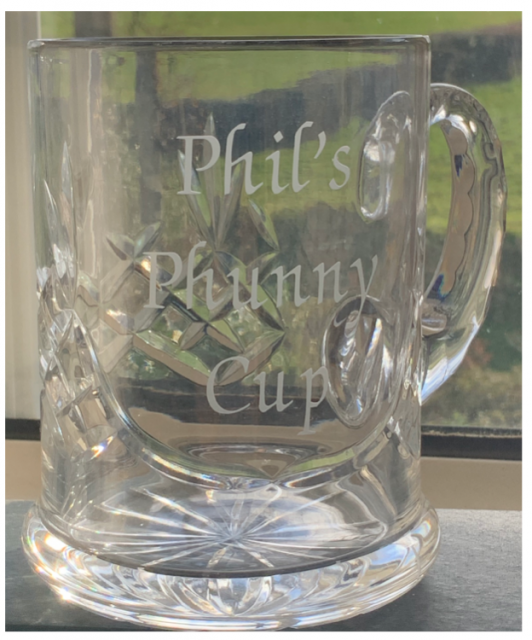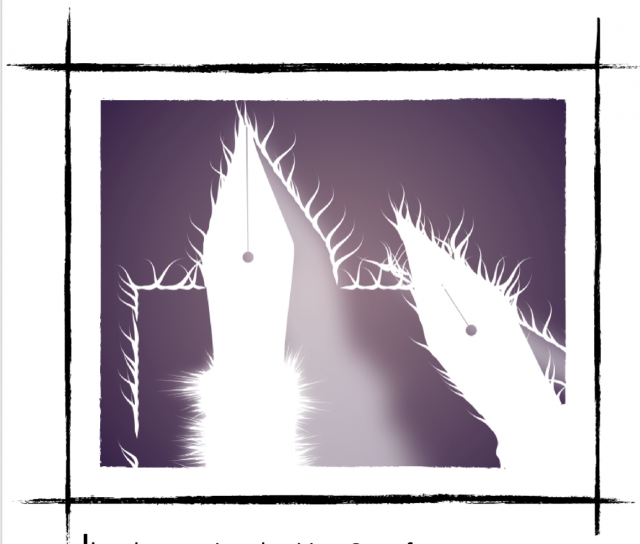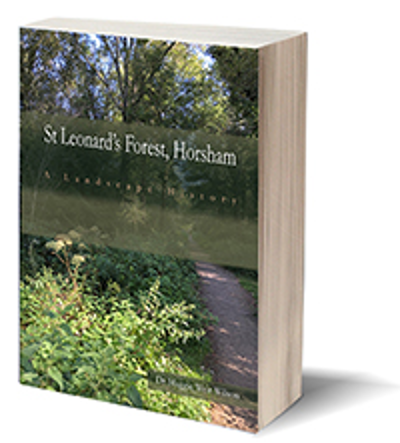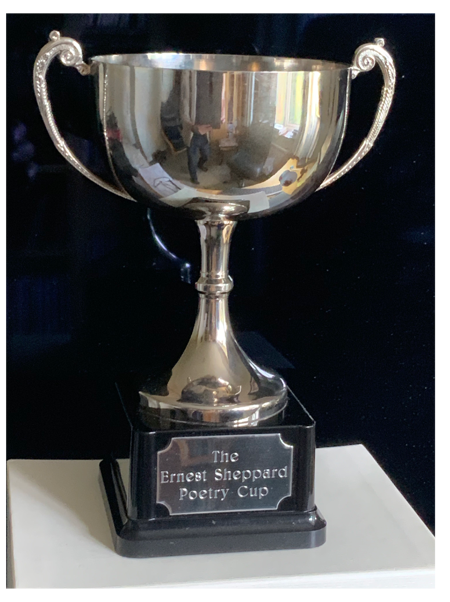December 2020
Welcome to the Bumper December Edition of the Newsletter.
At the last HWC meeting, it was decided that we should keep it going.
This month we have:
Members’ Musings | Phil’s Phunny Cup | Feature – Why I Write | Book Review | Author’s Showcase: Maggie’s ‘St. Leonard’s Forest’ | Writers’ Tips – Lesley | Kampala Market | Christmas Quiz | Poetry Prize Winners |
Member’s Musings
Some sites worth having a look at from Lesley*:
The first is info about NaNoWriMo’s November challenge, the second is a series of free weekly webinars from Reedsy which support NaNoWriMo and the third is another free webinar from Reedsy on writing your novel opening.
https://www.facebook.com/groups/687298795250966/permalink/689801001667412/
and finally: https://www.eventbrite.co.uk/e/crafting-a-novel-opening-reedsy-write-in-registration-124694798499?aff=eand
*I think the first one (or two) are advertising events that have taken place – BUT they’ll show you were to go for January events and talks (Bryan)
A Poem From Martin
My favourite limerick was written about me by my university chaplain when I fell in love (and it didn’t use the obvious rhyme to Martin which gives it extra points in my book).
Good use of rhyme…
Our Cathsoc president Martin Felt an affair was startin' He flexed his pecs to impress Bex, The girl he'd invested his heart in

Hello Everyone, Joan here.
I very much enjoyed the first Newsletter. I particularly liked Yvonne’s Quiz. I’m ashamed to say that I knew very few of the answers. I haven’t joined in the Zoom Meetings for various reasons. However, my daughter Eileen said she would help me to do so, I’ve just got to say the word. The Poetry entries were very varied. I am glad we didn’t have to choose the best.
The Lockdown had some benefits, mainly Eileen working from home. We get to have all our meals together and even play our adventure game on my tablet during her lunch hour. One thing that I’ve found hard was not being able to go to the library. I always have three books on my bedside table – three have been there since March. I hope no fines will incur.
Eileen came to my rescue and gave me her Kindle. We decided to go through the classics. I love adventure books (I read boys’ comics when young). I have started off with Tom Buchan. They are rather dated now and not all that PC however, I have enjoyed HALLAY’ds exploits. Apart from the poetry comp I haven’t done any other writing. This has got me started again. I am keeping well and hope all of you are too. Best wishes, Joan.
Phil’s Phunny Cup

For the December Christmas party competition, which is really aimed at having a little fun during our annual Christmas party, we have Phil’s Phunny Cup.
Phil’s Phunny Cup was donated in memory of Phil Hollis who was secretary and member of the HWC for many years and tragically passed away far too soon. Phil had a warm heart (and Clive remembers how welcoming he was when he first joined the group), and he had a penchant for humorous stories and anecdotes. He is remembered fondly by those who knew him.
The prize is the Phunny Cup and a bottle of Sparkling Wine.
The rules of the competition are as follows:
Entry to the competition is free.
The entrant may present one story only, 250 words maximum.
The entrant must read out their entry to the attendees of the meeting.
The entry must be a comedy, or at least humorous in some respect.
The entry must not be a limerick, nor be poetic, in any way whatsoever.
The entrant must not vote for their own entry – it would be churlish to do so.
When all the entrants have read their story, the attendees will vote for the story they liked best – hopefully the one that amused them the most. There can be no tied vote. Voting is usually done on strips of paper, but as we’re on Zoom I would be grateful if each member would send me a personal message on the Zoom chat function. I will run through that at the meeting.
The Competition Secretary tallies the votes and presents the prize to the winner. Once we know our winner than we can message to work out whether I drop your prize to you, or whether you would like to collect it from me.
If you’ve got any queries then please don’t hesitate to email me: .
Kind regards,
Lesley Hart
Competitions Secretary
Grateful Gran
As Gran, real name Mary, lowered herself gently into the well-upholstered lounge chair, she smiled sweetly at her daughter-in-law, Beth, and let go a cracking fart, as she thought: that’s for patronising me over the Christmas lunch.
Beth switched on the telly.
‘I expect you want to watch the Queen, Gran, she’s on in 5 minutes.’ Mary sighed…
‘Why would I want to do that?’ But Beth had already disappeared, coming back with a cup of tea and a mince pie before quickly disappearing again.
Mary, a staunch republican, began to hum the Red Flag. Then she got annoyed when the Queen started going on about happy Christmas families. You can talk, she thought. Exasperated she picked up her warm mince pie and threw it at the screen. The soft pastry broke all over her Maj., bits of sugar, pastry crumb and sticky fruit descending gracefully to the floor.
This caught the attention of the cat who padded over and began eating the sweet sticky mess. Then it stopped, arched its back, before great spasms racked its little body as it tried to regurgitate all it had eaten that day, which was quite a lot.
Quick as a young thing, Mary grabbed her iPhone and took a picture of the poor cat being sick.
Excellent, she thought, I’ll photoshop a Christmas hat on puss and post it to Facebook. Just about sums up my Christmas. It’s not that I’m not grateful… but maybe a cruise next year…
Maggie

Why
I
Write.
I’ve always enjoyed writing. One of my earliest memories was writing a story, a piece of fan fiction based on a game I played, when I was around 8 or 9. It was for a piece of school work and I vividly remember the excitement about the idea I had had when it suddenly sprung itself on me.
When I was 9 I read the Hobbit for the first time, and this ignited a love of books I hadn’t had before. Over the next few years I’d read The Lord of the Rings, along with numerous books by Trudi Canavan, J.K. Rowling and Robin Hobb. I made one semi-serious attempt at writing a novel before I went to University, but never completed it.
At University I read widely around history, politics and philosophy as well as various novels outside of the high fantasy fiction genre –
including, Salman Rushdie, Olaf Stapleden and George Orwell, the latter of which really kindled a passion for story-telling as a means of social commentary.
I love telling stories, orally and through writing – the former I do with my family frequently – and when a friend mentioned the Horsham Writers Circle, I felt that I could finally take my love of writing further than just as a small time and infrequent hobby, into something I could really throw myself into. The fact that within a year of joining I was able to take part in the Horsham Year of Culture book, Write Around Horsham, which is home to my first published fiction, was something I was very proud to be involved in.
L. Blackbrook
Book Review
Unsheltered
by
Barbara Kingsolver
I am a fan of Barbara Kingsolver (The Poisonwood Bible, The Lacuna, Flight Behaviour) but this novel really blew my socks off.
It tells the story of two groups of people, separated by over a century, but based in the same houses in a small town in the US. The modern day extended family are facing financial hard times and family break-down, and the country is heading towards an election (the year is 2016). In the same house about 150 years previously, a young science teacher is living in a society dominated by the town’s founder and the church, whilst his next door neighbour is a female naturalist with whom he shares discussions about Mr Darwin’s theories and battles the stagnant thinking of the town.
The two strands intertwine as the modern day mother discovers the history of the house, and with the help of a local historian, learns about the naturalist. Her first instinct is to make some money from this connection, but she ends up learning far more.
In both cases, societal beliefs and accepted aspirations are set on their heads as the two worlds face the need to take on new ways of thinking.
Both stories are compelling and thought-provoking in their own right, but as they run in parallel throughout the novel, they really challenge the reader to think differently about the way we live now, the things that matter and the way the nuclear family structure does not have all the answers.
One of those novels which you find yourself thinking about for weeks after the reading is done – be warned!
Tracey
Author’s Showcase:
Dr. Maggie Weir-Wilson

t is clear from reading this thoroughly researched and engaging book, St Leonard’s Forest, A Landscape History, that Maggie has a deep interest in and love of the Sussex landscape, particularly forests. When she came to live in Horsham in the year 2000, she was keen to know more about this lovely forest on her doorstep, so she began taking evening classes at the University of Sussex for a BA in Landscape Studies. When she retired from her work as a Probation Officer and Practice Teacher she continued studying for a part-time doctorate under the supervision of Professor Brian Short, and produced her thesis on St Leonard’s Forest in 2014.
Maggie discovered that hers was the first in depth study of St Leonard’s Forest and so felt her research, together with the information she had unearthed about the forest, should be more widely available; hence her initial determination to produce an interesting local history book about St. Leonard’s Forest based on her thesis. She also wanted to show off her new retirement interests in writing poetry and botanical painting, a somewhat quirky addition to any book. Thus, the road to finding a publisher for such a book was a rocky one. In the meantime, she was approached by Amberley Publications to write a book in their series on secret towns, so Secret Horsham was published in 2019 and is available locally and online.
Luckily, Maggie found Author’s Pen, new local publishers, through her attendance at Lesley Hart’s creative writing evening class at Collyer’s, Horsham. With their help and support her forest book, St. Leonard’s Forest, A Landscape History is due to be published before Christmas 2020. Maggie hopes it will be of interest to all those who look at the forest and wonder who owned the forest? Was it a royal forest? Who lived around and about, and how did they make their living? It will certainly be of interest to family historians particularly in the villages of Colgate and Lower Beeding. Ultimately, there is encouragement to get to know the forest by walking the footpaths that were so nearly closed at the beginning of the 20th century, and give thanks to those locals who protested and won the day. To walk through the forest and appreciate the history, the legends, and get that restorative feeling that can only come from the sight and smell of pine and beech, oak and birch.
Check out more about Maggie, her writing via her website: www.maggieweirwilson.uk
To pre-order and/or to buy either (or both) of her books please contact: authorspen@outlook.com

People Watching
How to Create Realistic Settings
Have you written a scene that sits flat on the page, which doesn’t conjure any visual imagery?
People watching and simply placing yourself in a setting and then writing from the perspective of your different senses can be a very useful tool to help you look around and take in all we so easily take for granted in what can often feel like ‘our ordinary lives’. Additionally, people-watching is a great way to add a change of landscape to your day; to give you a break from writing: to reconsider a scene that’s not paying its way.
Think about the type of atmosphere or mood you’re trying to create, what might impact this? A lot of people will use weather to create mood in their stories. Weather will subconsciously allow your reader to gauge setting but there are other ways too: a fun run might create an atmosphere of both sadness and motivation, a sense of people coming together to support one shared cause, a busy beach might create the atmosphere of happiness that summer is here, or annoyance that there aren’t sufficient places to sit. Think about incorporating your senses and the impact different stimuli can have on mood and atmosphere.
The purpose of writing is to make your reader feel; think about how the stimulus is making you feel and why? Does it impact your day, or the atmosphere, is it a passing annoyance, or joy?
Grab a coffee and go for a walk, take in everything that’s around you: the leaves drifting from the trees, sunshine peeking through gaps in buildings. Do you have to move to avoid a child on a bike, or a jogger weaving around people heading to work? How does this make you feel? What noises accompany their or your movements? Allow your thoughts to ripple and take in the noises slightly further away, maybe someone’s calling their dog back, a mobile phone might be going off. Allow the ripple to go slightly further take in the distant sounds of the traffic, or a trains hooter alerting people that the train’s about to leave.
Breathe in deeply through your nose – what can you smell? Can you identify different flavours within the scent? What thoughts or memories does this conjure?
Alternatively, having walked, cycled, or driven, to a café, find a seat in a busy area, or in a corner out of the way but within easy hearing distance of the action, or by the path. One tip I suggest to my writing students is to put some ear buds in, or even just one, this allows for the suggestion that you’re listening to music, rather than focussing on what’s around you. Just don’t use noise cancelling buds! Zone in on one or two conversations and listen out for the normal things that people say. Either write your notes in the book you’re using for this piece of writing, or directly into your phone. Don’t just think of this scene either, there might be other things you record, or think of: snatched sentences, sounds or scents that will be useful for other bits of action within this or a later story.
Think too about what you’re doing as you’re listening: what distractions grab your eye, or any of your other senses? For example: A toddler driving a toy car across the table opposite. Maybe someone slops their coffee as they place it down – do they clean it up? Or do they leave it for a member of staff to deal with? Or call over a member of staff to deal with it? How do they deal with it in order not to have to deal with it? Think about how the things going on around you make you feel? What was your mood when you entered the café? Has it changed? Why? Getting in touch with your feelings and how they can be changed by the stimulus around us is also important for helping to bring a scene to life.
Always look for opportunities to put yourself in settings or action situations that are similar to the ones in your novel. There will always be some stimulus that you’d forgotten to mention, or simply weren’t aware of and which will add that sense of empathy with your reader, for example: the smell of cold on people as they come into your house on a frosty winter’s morning, how loud footsteps sound on an empty street at night time, the shapes cast by lengthening shadows at the end of the day etc.
One Hour in Kampala Market
A market is a common place. A place where people mingle and barter. A world within a world. Kampala market sits close to the heart of town. It is a dynamic world where sellers come and go throughout the day. Meat is often sold live and transported by whatever means; a young pig is fastened across the handlebars of a bicycle, its squeals run among the tyres and trucks.
Rain has swept the streets as clean as any deluge can. Mud has walled-up in the lower end, where the livestock snorts and chews the cud. The African sun returns to bake the earth and everything on it, including the only white face in an ocean of black. There’s a surge in voices as the traveller enters the market by the insect stall. Grasshoppers clamber under scratched acrylic lids in a futile bid to avoid being lunch. Pots of ants are scooped up and deposited into the customer’s plastic pot, Pret A Manger. A terrier, cross-bred a thousand times, darts under the tables raising the ire of those around. There’s a yelp and the dog hobbles on three legs, but he has a bone.
White face is at the meat counter, he must be feeling brave. A finger points at a pile of flies. ‘Cow.’ The butcher says. The black swarm settles on some glistening entrails. White boy moves on, meat ain’t on the menu.
Humidity is rising. Twenty minutes of searing heat and the rain never happened at all. The market flows downhill, before curving back around toward the top. A man of skin and bone stretches out over a bed of pineapples, a trick to dissuade the thieves. A pineapple sells for 500 shillings that’s 25 pence back home. The traveller selects a pineapple. He’s encouraged to feel the quality but remains clueless. Skin and bone drops the fruit in a thin blue carrier bag and money changes hands. It’s smiles all round, more teeth than a crocodile, but they can be trusted.
Gone is the musk of mud and petrichor. Bodies are warming in the sun, deodorant is a luxury rarer than mzungus, it’s what the locals call white people, sometimes white and angry. Our mzungu is getting passion juice. His attention is on the black woman spooning the guts from passion fruits into a tea strainer over a glass. Brown sugar is ground into the pips and pulp until only the seeds remain. From a cupboard, Mumma takes a handful of fat oranges and dumps them in a juicer. She winds the handle and the oranges roll up and over into the juicing pit. She shoves the glass under the spout washing the sugary pips with the nectar. Money and smiles are exchanged. More teeth. This crocodile has the elixir of life. White face’s eyes come alive as Africa erupts in his mouth. A series of long sips, the lips never leave the glass until it’s all gone and only sugar syrup remains. But he still hasn’t found what he’s looking for.
Mathew Bridle
LET’S GET QUIZZICAL.
Your Christmas Quiz from Yvonne
WHO SAID….?
1. Tell the bearer not to forget to bring me a fairing, which is some gingerbread.
A. Rudyard Kipling B. The Brothers Grimm C. Percy Bysshe Shelley
2. He made free of his stored up chick peas …some desiccated berries and half-chewed scraps of bacon fat …
A. Beatrix Potter B. Horace C. Charles Dickens
3. She sent out for one of those plump little cakes called ‘petites madeleines’…
A. E.M. Forster B. Virginia Woolf C. Marcel Proust
4. Love-apples they be; though some ignorant folks be a calling ‘em tommytoes … nasty sour things … as only gentry can eat.
A. Flora Thompson B. Alan Titchmarsh C. H.E. Bates
5. Nothing takes the taste out of peanut butter quite unrequited love.
A. Jimmy Carter B. Delia Smith C. Charles M. Schultz
6. Eat, drink and be merry, for tomorrow we die.
A. Wetherspoons brochure B. The Bible C. William Shakespeare
7. Christmas Dinner was something of a success. It passed off, at any rate, without bloodshed.
A. Kingsley Amis B. John Updike C. Clive James
8. …..coldtonguecoldhamcoldbeefpickledgherkins…….
A. Kenneth Grahame B. A.A. Milne C. Jamie Oliver
9. I do like a little bit of butter to my bread
A. A.A. Milne B. Kenneth Grahame C. Jamie Oliver
10. A Merry Christmas to us all, my dears. God Bless Us!
A. H.M. The Queen B. Charles Dickens C. Yvonne Warwick
ERNEST SHEPPARD POETRY COMPETITION 2020

THE WINNERS
First Place Allotment Refuge The Arun goes rogue, bursting banks, reclaiming flood plains, thieving topsoil, careering down roadsides. Patiently I cut the old canes and string away from the wires, the frame that held their harvest. The allotment quietly thrums after the rain, air vibrating. I disentangle the new canes, tying, looping, securing. Its peaceful here, birds sing. I think of Australia, its fragile native landscape still burning. I cut down the raspberry canes confident of new spring growth, harvest Jerusalem artichokes and kale, untouched by flood or flame. Maggie Second Place Le Phare et La Mer By Neptune sent and trident thrashed, Her lumpy waves swell tall To smash down on the rocks and spray, Then hiss from Pharos’ wall. She seeks the lighthouse keeper’s soul And thumps against the sluice, Within she seeps, stomps up the steps – Thump, thump – she comes with noose. Come leave this dull old post she sues, Come ‘though the cables hum, Come give us of your light and life, Come shake a leg, sup rum. Come open-up this door, descend, Come share our spicey charms. Our mermaids want to swirl and slide – Sup, sup – beneath your arms. The chamber’s silken silence sinks Upon her salty hoax, Says sinews that once creaked these stairs Your sirens cannot coax. The light may beam from this high room But here be only ghosts, For new stars guide the mariners Around these dark mean coasts. I’ll have them rot your wires through, I’ll have your wraiths, each one, You’ll dance a never-ending jig Beneath when I am done. It matters not, replies the room, ‘Though block and mortar groan, Feel free to scrape away the walls, With gulls we will have flown. Clive Thrid Place Momento Mori An ancient crow wings low and slow across a darkened sky. And calls out raspingly its late wild and jeering cry A harbinger perhaps A harbinger of what’s to come - That elephant that waits there sullen in my room. For I’m long along my journey On a road that was quite easy; But my carefree carpe diem Is finally succumbing To that awful tempus fugit, And my chance to play for England’s passed me by. I see the photo’s in my album Of my changing face when younger - I see say-cheesy happy smiles. I see a man that’s smart not wise. I see a man unsure, uncertain Of his values - one who wonders if he’s worthy Or the purpose of His purpose. So in this half-light fading Soon to join that agéd crow that’s calling I need to find my true voice, As I fly towards that darkness. I hope to find some new voice, Some voice to really tell them. And I’m asking and I’m hoping Please, let the sound I leave behind me To all I leave behind me Be a sound that tells of love … and joy. Bryan Back to Top
Answers
1. C. Shelley – in a letter to his Aunt when he was 10.
2. B. Horace – in Satires. The tale of the town mouse and the Country mouse.
3. C. Marcel Proust – Remembrance of Things Past.
4. A. Flora Thompson – Lark Rise
5. C. Charles Schultz – in cartoon
6. B. The Bible – a merging of refs in Ecclesiastes and Isaiah
7. A. Kingsley Amis – in Ending Up.
8. A. Kenneth Grahame – Ratty’s picnic in Wind in the Willows
9. A. A.A. Milne – The King’s Breakfast
10. B&C Charles Dickens – Bob Cratchit in A Christmas Carol
And Yvonne Warwick to All HWC Members.
